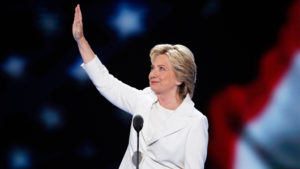
By any measure, the nomination of Hillary Clinton as the first female nominee to a major political party in the United States is monumental. This week Clinton has gone farther than any other woman in U.S. history, but globally – and surprisingly more so in the machismo world of Latin America – female political figures have been elected to the highest political offices in their countries for decades..
“The weight of machismo makes it all the more surprising that all these women presidents have been elected in the region,” Cynthia Arnson, the director of the Latin American Program at the Woodrow Wilson told Fox News Latino. “It seems like kind of an anomaly.” Since the 1970s, eight of the 29 women elected as president in the world have come from Latin America or the Caribbean, and the Americas has the world’s second-highest regional average of women in the lower houses on Congress – about 24 percent – behind Scandinavia at 42 percent, according to the Inter-American Dialogue, a Washington D.C.-based think tank.
Also while the U.S. may have a record number of women in Congress – making up just over 19 percent of elected officials on Capitol Hill – women in Latin America make up over 25 percent of parliamentary positions, according to the New York-based Americas Society/Council of the Americas. While some women leaders are protégés or wives of former presidents – much like Clinton with her husband – analysts point to a number of other reasons why women have been so successful at attaining positions of power in government in Latin America
A series of quota laws in certain countries have guaranteed that women, at least at the national level, will be in the running for political positions. “Latin America has come late to democracy but it has been much more progressive in terms of putting quotas for women in political parties,” Chris Sabatini, a professor at Columbia University’s School of International and Public Affairs, told FNL. The brutal military dictatorships of the 1970s and 1980s throughout the Southern Cone may have resulted in the deaths of thousands of people and large-scale human rights violations, but they also helped give women a political voice that was previously denied to them.
While they were far from spared the cruelties of regimes like Chile’s Augusto Pinochet or Brazil’s decades-long military rule, many academics say that women were able to more freely speak out against the atrocities than men were. Another reason, experts say, that when countries in Latin America transitioned from military dictatorships to democracies there was a retooling of the political process and political parties – something that in a stable democracy like the U.S. is hard to do.

Recent Comments